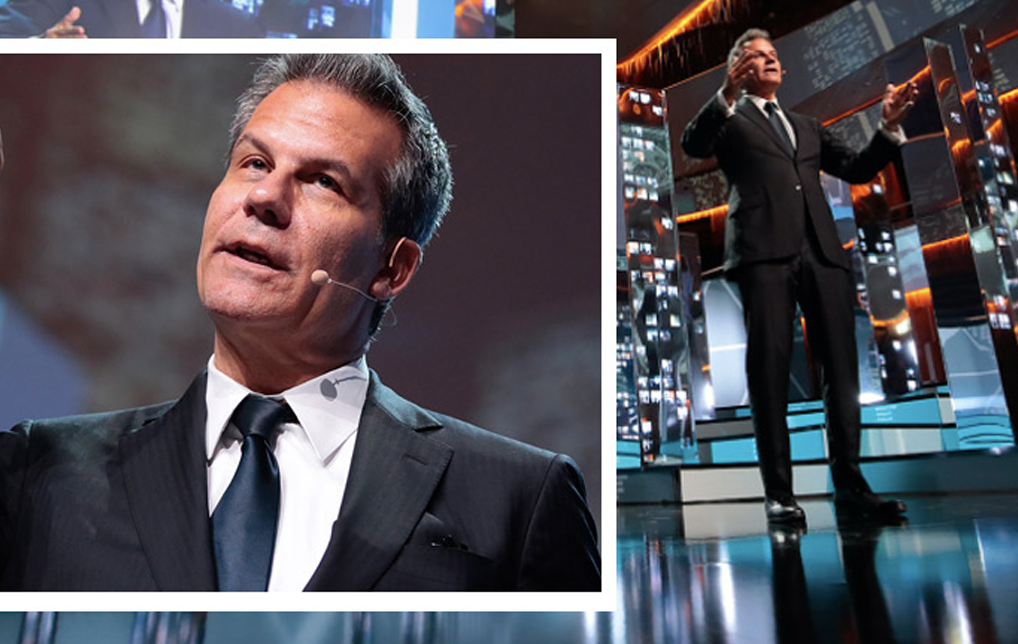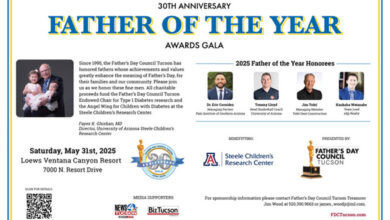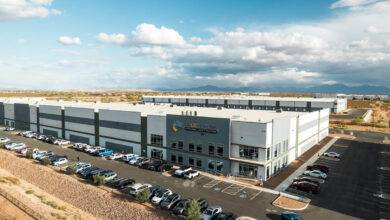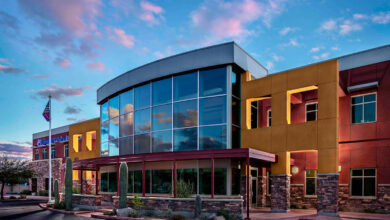
Sun Corridor Inc. Annual Meeting Casts Optimistic Eye Toward Future
By Tara Kirkpatrick
The Great Reset.
It’s a book that world-leading urbanist Richard Florida wrote about the nation’s path forward after the 2007-08 U.S. financial crisis. “I wrote that book 14 years too early,” he told attendees at Sun Corridor Inc.’s annual meeting Thursday. “We are now witnessing The Great Reset.”
The renowned guest speaker told the region’s top civic and business leaders that in the aftermath of the COVID-19 pandemic, the ensuing economic shift will be fueled by legions of people figuring out where they want to live and work. The cities and communities that capitalize on this pivotal movement will be the winners of post-pandemic society, he said.
“Tucson, don’t blow this,” said Florida, a professor and head of the Martin Prosperity Institute at the Rotman School of Management at the University of Toronto and a Distinguished Fellow at NYU’s School of Professional Studies. “This is your once-in-a-century opportunity to reimagine yourself. To rethink the way you want to grow and develop.”
It should start with talent attraction, Florida said, which will likely surpass corporate relocation as a key factor for urban growth and revitalization. “The only game left in town is talent attraction,” Florida said. “Remote work is a perk and a privilege that’s going to be used to attract top talent. Companies are figuring this out.”
He said cities like Tucson should focus on creating the best, most innovative areas where people can connect and thrive. Florida predicted the most sweeping change will see the traditional office model and traditional centralized business district cede to more “social districts” and functional neighborhoods where people work, collaborate and gather.
“We should be thinking about what is the remote working ecosystem of the future,” Florida said. “Couldn’t Tucson be the perfect example of what urbanists called 15-minute neighborhoods? Couldn’t you reimagine Tucson as a set of communities that have their own spaces for living and working and connecting?”
Florida’s visionary speech capped an optimistic annual meeting for the region’s economic engine. Held at the Westin La Paloma Resort & Spa this year, Sun Corridor Inc. hosts the gathering to educate the region’s leadership and expose them to the top leaders, issues and opportunities facing economic development.
Sun Corridor President and CEO Joe Snell reported on the group’s Pivot Playbook, a game plan for the region to recover and succeed following COVID-19. Fueled by the collaboration of private and public sector leaders, it’s a formal blueprint that focuses on company recruitment, talent acquisition and retention, workforce development and training, shovel-ready real estate and tourism. The playbook was even highlighted in an April 6 article in The New York Times on cities’ efforts to rebound.
“We believe we are going to see significant growth in the future,” Snell said. “Early indicators suggest we are going to see our fair share of oppourities. We at Sun Corridor are absolutely committed to all these areas.”
“In the very near future, we will convene the region’s top leadership to put the strategies in motion,” he said.” “They are going to require all hands on deck. We all need to work together.”
In other good news, Snell announced that Imperial Brown, one of the world’s top manufacturers of custom walk-in coolers and freezers, is building a 100,000 square-foot manufacturing facility in Tucson that will employ 100 people.
“The economy in Tucson and Southern Arizona continues to thrive, even in a pandemic environment,” said Snell.





